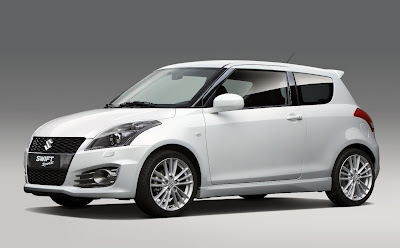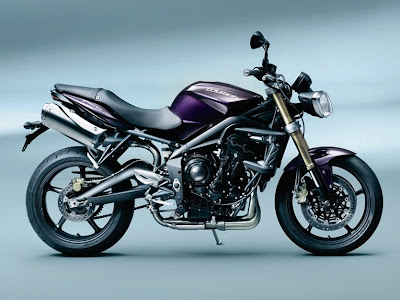Top 10: 2013 Golf essentials
Last year, the Volkswagen Golf was the fourth best-selling car in the UK, recording over 63,000 registrations. Indeed, in its market segment, only the Ford Focus was more popular.
So, given that the just-unveiled seventh-generation Golf is going to be crucial for the brand, here are ten things to know about it:
1. It’s not a facelift, it’s an all-new car
Underpinning the Mk.7 Golf is the new MQB platform. In German, that stands for Modularer Querbaukasten, which roughly translates as ‘Modular Transverse Matrix’.
Essentially, it’s a flexible architecture that allows for varying wheelbases, tracks and body sizes, meaning that MQB will eventually be employed on a very wide range of Volkswagen Group products.
2. It’s longer, wider and lower
Not by much though. Measuring 4,255 mm (13’ 11”) long, 1,799 mm (5’ 10”) wide and 1,452mm (4’ 9”) tall, the latest Golf is 56 mm (2”) longer, 13 mm (0.5”) wider and 28 mm (1”) lower than before.
However, those altered dimensions have resulted in a noticeable change in proportions, something that the elongated bonnet and longer wheelbase also contribute to.
3. It’s not the best-looking Golf ever
Of course, judgement should really be reserved until the thing has been seen in the metal. Yes, the trademark thick C-pillar and upright rear hatch still remain but, judging from the images, the more sculpted body sides and the sharper styling details have eroded the characteristic look of solidity possessed by earlier Golf incarnations.
4. It’s lighter
Increasingly stringent crash test requirements, growing dimensions and escalating equipment levels invariably mean that cars are getting heavier. The Golf bucks that trend though, and some versions are claimed to be 100 kg lighter than their predecessors - a remarkable feat.
5. Its engines are new
From launch, there’ll be a choice of four engines:
· 1.2 litre TSI turbo petrol with 83 bhp (63 kW / 85 PS)
· 1.4 litre TSI turbo petrol (featuring cylinder-deactivation technology) with 138 bhp (103 kW / 140 PS)
· 1.6 litre TDI turbo diesel with 103 bhp (77 kW / 105 PS)
· 2.0 litre TDI turbo diesel with 147 bhp (110 kW / 150 PS)
The selection is expected to grow in due course, with hybrid and all-electric powertrains also rumoured for the future.
6. It’s more economical
Due in part to that diet, as well as standard-fit stop-start and brake energy regeneration systems, Volkswagen reckons that fuel efficiency could be as much as 23 per cent better.
For example, the 1.6 litre common-rail diesel achieves an average of 74.3 mpg (3.8 l/100km) while emitting 99 g/km of carbon dioxide. Impressive figures but, if that’s not efficient enough, in BlueMotion form they become 88.2 mpg (3.2 l/100km) and 85 g/km.
7. It comes with two rear suspension set-ups
The sophisticated multi-link rear suspension currently fitted to all Golf variants will be reserved solely for more expensive versions of the Mk.7. To save costs, cheaper models will get a simpler torsion beam arrangement.
8. Equipment levels will be fairly generous
All trim levels will come equipped with either a monochromatic or a full-colour touch screen, which will operate functions such as the audio and climate control systems. On the safety front, multi-collision braking is fitted as standard, and it’s designed to bring the vehicle to a complete halt after an initial crash to help prevent further impacts.
9. There’ll be high performance GTI and R versions
Naturally, although not from launch. Engine specifications, and whether they’ll be front- or all-wheel drive, have yet to be confirmed.
10. More body styles are on the way
Expected to appear over the next couple of years will be the usual suspects: a three-door hatchback, an estate, a convertible and the high-roofed Golf Plus. That last one might actually seem slightly less pointless, now that the regular Golf has adopted a lower profile.
The Mk.7 Golf will make its public debut at the Paris Motor Show, and sales are due to begin before the end of the year. UK prices have yet to be confirmed.
Related posts:
The green Polo BlueGT
Five-door Volkswagen Up!
Top 10: UK car sales 2011
So, given that the just-unveiled seventh-generation Golf is going to be crucial for the brand, here are ten things to know about it:
1. It’s not a facelift, it’s an all-new car
Underpinning the Mk.7 Golf is the new MQB platform. In German, that stands for Modularer Querbaukasten, which roughly translates as ‘Modular Transverse Matrix’.
Essentially, it’s a flexible architecture that allows for varying wheelbases, tracks and body sizes, meaning that MQB will eventually be employed on a very wide range of Volkswagen Group products.
2. It’s longer, wider and lower
Not by much though. Measuring 4,255 mm (13’ 11”) long, 1,799 mm (5’ 10”) wide and 1,452mm (4’ 9”) tall, the latest Golf is 56 mm (2”) longer, 13 mm (0.5”) wider and 28 mm (1”) lower than before.
+Front+Side+1.jpg) |
| The 2013 Volkswagen Golf Mk.7 - scroll down for more images. |
However, those altered dimensions have resulted in a noticeable change in proportions, something that the elongated bonnet and longer wheelbase also contribute to.
3. It’s not the best-looking Golf ever
Of course, judgement should really be reserved until the thing has been seen in the metal. Yes, the trademark thick C-pillar and upright rear hatch still remain but, judging from the images, the more sculpted body sides and the sharper styling details have eroded the characteristic look of solidity possessed by earlier Golf incarnations.
4. It’s lighter
Increasingly stringent crash test requirements, growing dimensions and escalating equipment levels invariably mean that cars are getting heavier. The Golf bucks that trend though, and some versions are claimed to be 100 kg lighter than their predecessors - a remarkable feat.
5. Its engines are new
From launch, there’ll be a choice of four engines:
· 1.2 litre TSI turbo petrol with 83 bhp (63 kW / 85 PS)
· 1.4 litre TSI turbo petrol (featuring cylinder-deactivation technology) with 138 bhp (103 kW / 140 PS)
· 1.6 litre TDI turbo diesel with 103 bhp (77 kW / 105 PS)
· 2.0 litre TDI turbo diesel with 147 bhp (110 kW / 150 PS)
The selection is expected to grow in due course, with hybrid and all-electric powertrains also rumoured for the future.
6. It’s more economical
Due in part to that diet, as well as standard-fit stop-start and brake energy regeneration systems, Volkswagen reckons that fuel efficiency could be as much as 23 per cent better.
For example, the 1.6 litre common-rail diesel achieves an average of 74.3 mpg (3.8 l/100km) while emitting 99 g/km of carbon dioxide. Impressive figures but, if that’s not efficient enough, in BlueMotion form they become 88.2 mpg (3.2 l/100km) and 85 g/km.
7. It comes with two rear suspension set-ups
The sophisticated multi-link rear suspension currently fitted to all Golf variants will be reserved solely for more expensive versions of the Mk.7. To save costs, cheaper models will get a simpler torsion beam arrangement.
8. Equipment levels will be fairly generous
All trim levels will come equipped with either a monochromatic or a full-colour touch screen, which will operate functions such as the audio and climate control systems. On the safety front, multi-collision braking is fitted as standard, and it’s designed to bring the vehicle to a complete halt after an initial crash to help prevent further impacts.
9. There’ll be high performance GTI and R versions
Naturally, although not from launch. Engine specifications, and whether they’ll be front- or all-wheel drive, have yet to be confirmed.
10. More body styles are on the way
Expected to appear over the next couple of years will be the usual suspects: a three-door hatchback, an estate, a convertible and the high-roofed Golf Plus. That last one might actually seem slightly less pointless, now that the regular Golf has adopted a lower profile.
The Mk.7 Golf will make its public debut at the Paris Motor Show, and sales are due to begin before the end of the year. UK prices have yet to be confirmed.
Related posts:
The green Polo BlueGT
Five-door Volkswagen Up!
Top 10: UK car sales 2011

+Rear+Side.jpg)
+Side.jpg)
+Dashboard.jpg)
+Front+Side+2.jpg)
+Front+Side.jpg)
+Front+Side+1.jpg)





Comments
Post a Comment